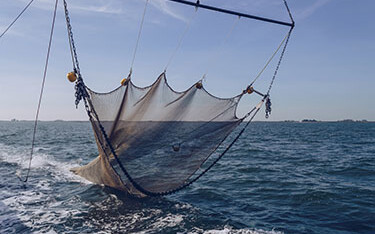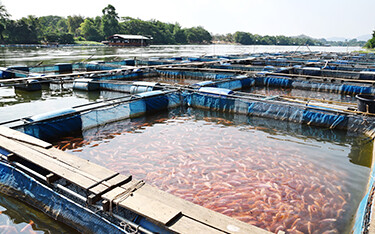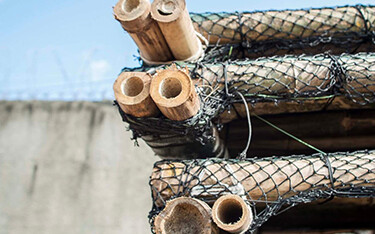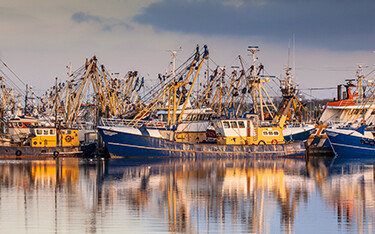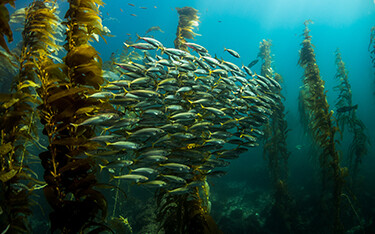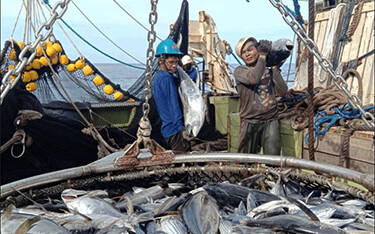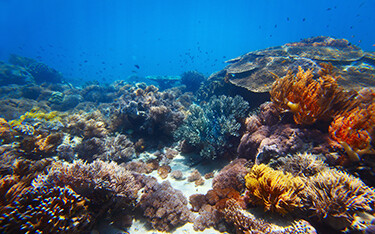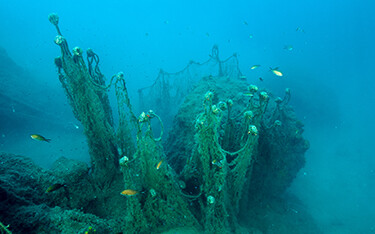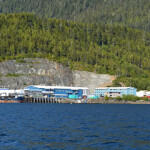Bottom trawling, a fishing method that entails towing a net along the ocean floor to capture target species, does not release as much carbon as air travel, according to a response paper that sought to debunk research published in 2021 and picked up by global media outlets, including The Guardian.
The response paper, “Quantifying the carbon benefits of ending bottom trawling,” released in May 2023, claims that Sala et al. – the
… Read MoreOver 90 percent of global blue food production faces substantial risks from environmental changes, with leading seafood-producing countries – including China, Norway, and the U.S. – running the highest risks, according to a new study.
Published in the scientific journal Nature Sustainability, the study, “Vulnerability of blue foods to human-induced environmental change,” included a global analysis assessing the
… Read MoreThe U.S. Department of Defense (DoD) has awarded an Oregon State University (OSU) researcher USD 1.4 million (EUR 1.3 million) over three years to predict how fish stocks could shift due to climate change, specifically focusing on movements that have the potential to cause geopolitical tension.
The research aims to support world leaders in reducing the risk of future conflicts and, if tensions do rise, enhancing global preparedness for such
… Read MoreTraditionally, retailers selling shelf-stable seafood products have limited their offerings to simple, unflavored cans of fish – primarily tuna – lacking the innovation that other food categories have been able to achieve.
Research on what seafood consumers value, such as the 2023 FMI Power of Seafood report, continues to indicate U.S. seafood shoppers prioritize quality, price, sustainability, convenience, and health, but
… Read MoreWild kelp forests help generate an annual average of USD 500 billion (EUR 456 billion) in global fisheries production, a study published in Nature Communications has found.
The study, “The value of ecosystem services in global marine kelp forests,” aimed to calculate the worth of this historically undervalued resource and emphasize its economic and ecosystem benefits.
“[The study is] meant to bring attention to an ecosystem
… Read MoreThis is part two of a two-part series on human rights abuses in the tuna industry. Part one explored the details of abuses uncovered by the report.
Human rights violations remain prevalent in the tuna industry, according to a recent report from BLOOM, a Paris, France-headquartered nonprofit.
The report, “Canned Brutality: Human rights abuses in the tuna industry,” details how many tuna products on European shelves stem from supply
… Read MoreThis is part one of a two-part series detailing human rights violations in the tuna industry. Part two explores BLOOM's calls to the industry and government for action.
Debt bondage, passport confiscation, as well as physical, sexual, and verbal abuse are just a few human rights violations that tuna companies are failing to address on their fishing vessels and in processing plants contributing to their supply chains, according to a new
… Read MoreSmall-scale fisheries in Africa and Asia, where accurate stock predictions are often too expensive to conduct, are underperforming relative to their maximum sustained yields due to undue strain from overfishing, a new study published in Marine Policy has found.
African countries, in particular, are becoming net importers rather than exporters as fishery yields are declining at an estimated 1 million metric tons (MT) per year. Human,
… Read MoreThe second of five planned meetings hosted by the Intergovernmental Negotiating Committee (INC) of the United Nations Environment Program (UNEP) to discuss global plastic pollution ended with greater emphasis and discussion on marine debris, including abandoned, lost, or discarded fishing gear (ALDFG) – also known as ghost gear.
The INC sessions aim to negotiate an international, legally binding plastics treaty, as global plastics
… Read More

